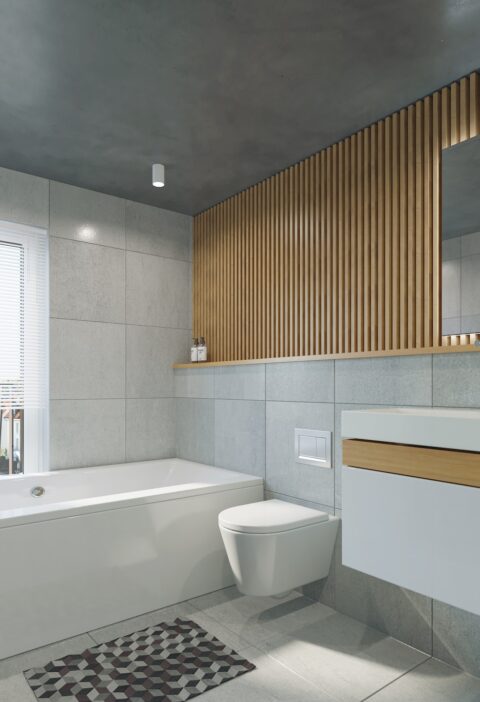One of the most important aspects of your journey as an international student in the UK is finding the right student housing. Where you live can significantly impact your overall experience, so it’s essential to make informed decisions. In this guide, we’ll explore everything you need to know if you need help finding your student home wherever you are studying in the UK.
1. Start Your Search Early
Finding the perfect student housing in the UK can be competitive, especially in popular cities like London, Manchester, or Edinburgh. To secure the best options, start your search as early as possible. Here’s why:
- Limited Availability: High-demand areas have a limited supply of student housing. Starting early gives you a better chance of finding suitable accommodation.
- Budget Planning: Early planning allows you to budget effectively for your accommodation expenses, ensuring you can afford a comfortable place to live.
- Less Stress: Avoid last-minute scrambles by beginning your search well ahead of your arrival in the UK.
2. Determine Your Budget
Consider all potential expenses, including rent, utilities, and any upfront costs like security deposits. Here are some tips for budgeting:
- Research Costs: Research the average cost of student accommodation in your desired city. Keep in mind that prices can vary significantly from one location to another.
- Prioritise Needs: Identify your essential needs in terms of housing. Do you require a single room, a shared apartment, or a dormitory-style residence? Prioritising your needs helps you allocate your budget accordingly.
- Consider Additional Costs: Factor in expenses like transportation, groceries, and leisure activities when creating your budget.
3. Explore Different Types of Housing
In the UK, international students have several options when it comes to housing. Each type has its advantages and disadvantages, so it’s crucial to choose the one that suits your lifestyle and preferences:
- University Halls: These are on-campus accommodations provided by the university. They offer convenience, a sense of community, and proximity to campus facilities.
- Private Student Accommodations: Privately-owned student housing is often located near universities and comes in various forms, from shared apartments to studio apartments. They provide more independence but may be more expensive.
- House Shares: Sharing a house with other students can be a cost-effective option. It’s essential to find compatible housemates to ensure a harmonious living environment.
- Private Rentals: Renting a private apartment or house gives you the most independence but can also be more expensive. Make sure you understand the local rental market and your rights as a tenant.
4. Location Matters
Choosing the right location for your student housing can significantly impact your experience in the UK. Here are some factors to consider when deciding where to live:
- Proximity to Campus: If you want to minimise commute times, look for housing options close to your university. This can save you time and money on transportation.
- Safety: Research the safety of the neighborhood where you plan to live. Online resources and local advice can help you determine if an area is safe for students.
- Amenities: Consider what amenities are nearby, such as grocery stores, public transportation, and healthcare facilities. Convenient access to these services can make your life easier.
- Cultural Experience: Some students prefer to immerse themselves in the local culture by living in less internationalised neighborhoods. This can be a great way to experience the authentic UK lifestyle.
5. Understand Your Tenancy Agreement
Before signing any rental agreement, it’s crucial to understand the terms and conditions. A tenancy agreement is a legal contract, and it’s essential to be aware of your rights and responsibilities as a tenant. Here’s what to look for:
- Rental Duration: Determine the length of your lease. Student housing in the UK often offers fixed-term contracts that align with the academic year.
- Rent Payment Details: Understand how and when you need to pay your rent. Ensure you have a clear understanding of any late fees or penalties.
- Security Deposit: Know the amount of the security deposit required and the conditions for its return. Take photos of the property’s condition before moving in to avoid disputes later.
- House Rules: Read and understand any house rules or regulations imposed by the landlord or the accommodation provider. This can include rules on guests, noise, and cleanliness.
6. Check for Student Discounts
As an international student in the UK, you may be eligible for student discounts on various expenses, including housing. Here are some ways to save money:
- Council Tax Exemption: Full-time students are usually exempt from paying council tax. Make sure to inform your local council about your student status to avoid unnecessary charges.
- Student Housing Discounts: Some private accommodation providers offer special rates or discounts for students. Explore these options to get the best deal.
- Transportation Discounts: Consider getting a student travel card for reduced fares on public transportation. This can make commuting to and from your accommodation more affordable.
7. Prepare for Your Move
Once you’ve secured your student housing, it’s time to prepare for your move to the UK. Here are some essential steps to make your transition smooth:
- Packing Essentials: Pack essential items like your passport, visa, academic documents, and any necessary prescriptions in your carry-on luggage. These items should be easily accessible upon arrival.
- Travel Insurance: Consider purchasing travel insurance to cover unexpected events during your journey.
- Local Sim Card: Get a local SIM card for your phone to ensure you have access to communication as soon as you land.
- Bank Account: Open a UK bank account as soon as possible to manage your finances conveniently.
8. Personalise Your Space
Making your student housing feel like home is essential for your overall well-being. Here are some tips to personalise your space:
- Decorate: Add personal touches to your room or apartment, such as posters, photos, and decorations that remind you of home.
- Organise: Keep your living space organised and clutter-free. This will help create a calming environment where you can focus on your studies.
- Comfort: Invest in comfortable bedding and furniture to make your living space as cosy as possible.
Conclusion
Navigating student housing as an international student in the UK can be a rewarding experience with the right approach. Start your search early, set a realistic budget, and carefully consider your housing options.







